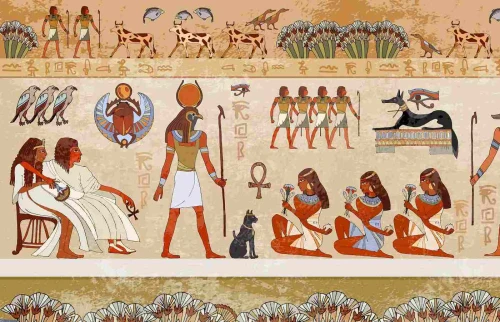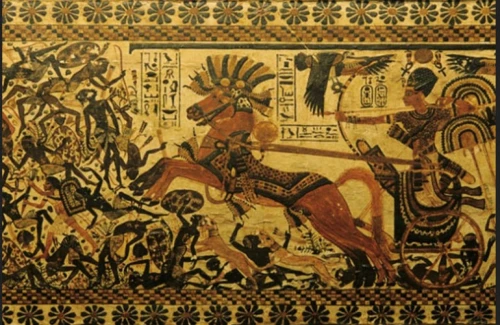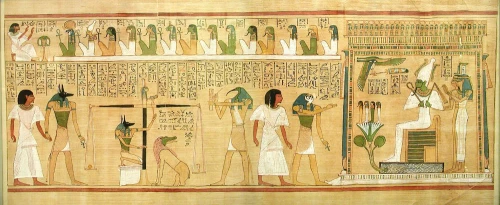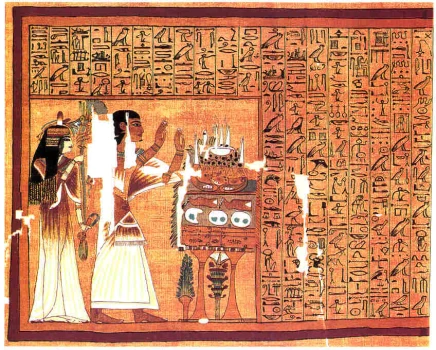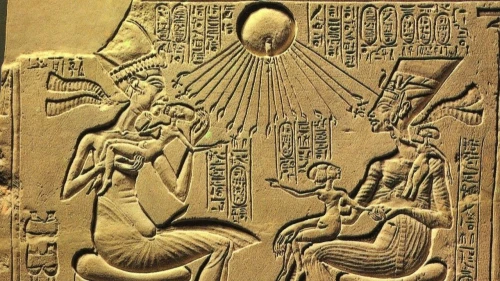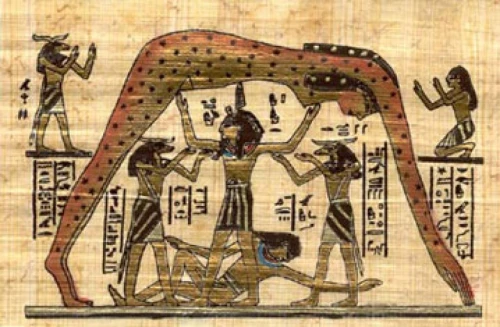
GEB The god of Earth, Geb was one of the nine gods of the ennead, the creation myth that arose in Heliopolis. He was the son of Shu, the god of air, and Tefnut, the goddess of moisture, who were the children of Atum, the creator god. Geb's sister and wife were Nut, the sky goddess, and their children were Isis, Osiris, Nephthys, and Set. As the god of earth and vegetation, Geb is sometimes colored green, with plants sprouting from his back and water spurting from his body.
One of his symbols was the goose, which he sometimes wore on his head. His daughter Isis once held the obscure title Egg of the Goose. At other times Geb was portrayed as a man wearing the red crown of the Delta and reclining on one side or seated on a throne. One myth says that when Geb and his wife, Nut, became the parents of the sun, he was hailed as the Father of the Gods. Geb's most important role was that of a judge in the Contending of Horus and Set. As Father of the Gods, Geb gave his son Osiris the Earth to rule.
The ancient Egyptians believed Gebel Barkal was a holy mountain and home to the great god Amun. They covered the tall peak in gold because it resembled a rearing cobra. When Egyptologists excavated the ruins around Gebel Barkal, they found the remains of 13 temples and three palaces.
When Osiris was killed by his evil brother Set, Horus avenged his father and was favored by Geb and given the Earth to rule. From this myth came one of the titles of the pharaoh: Heir of Geb.
 English
English
 Spain
Spain

